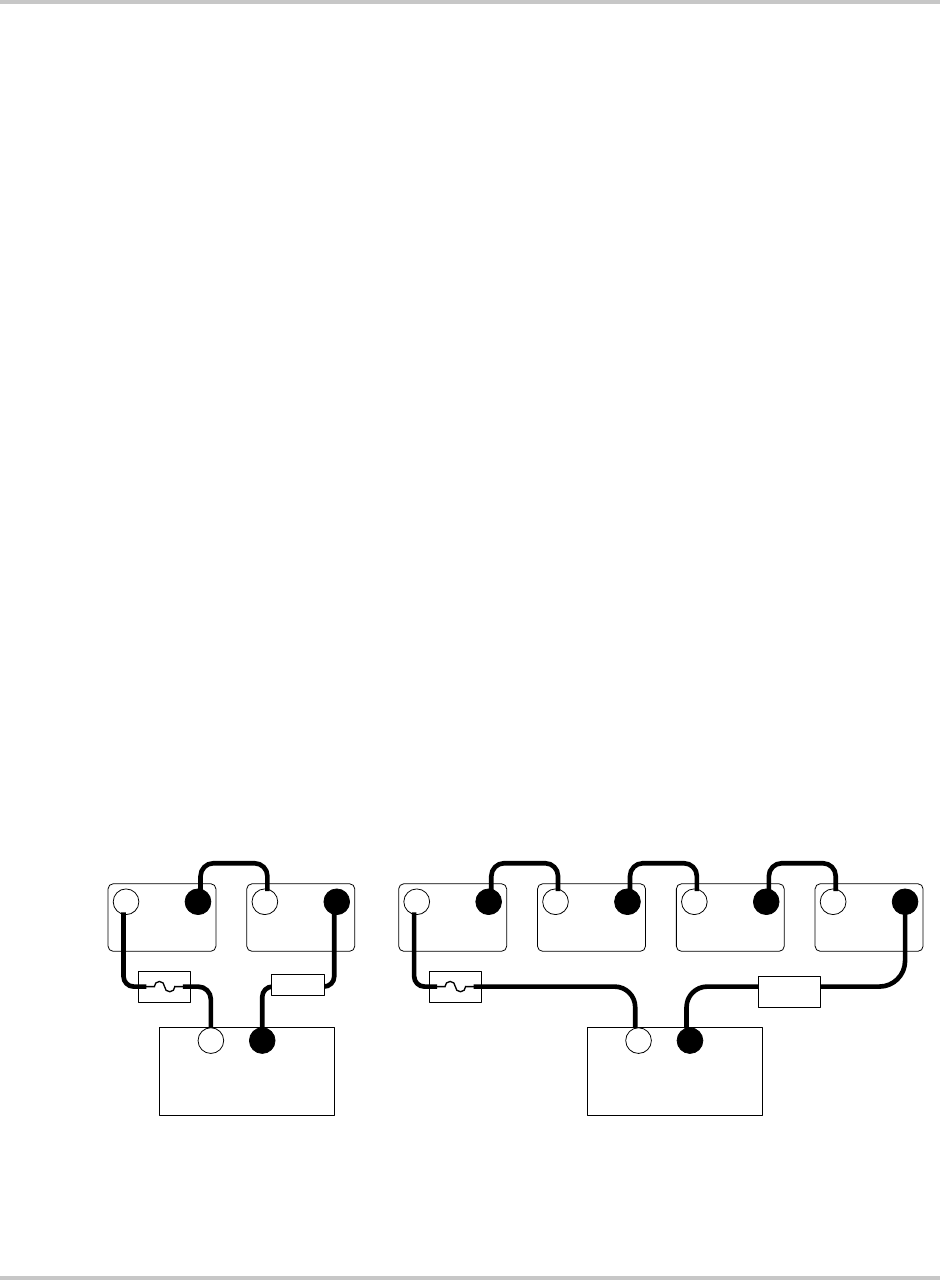
Battery Information
B–8 975-0012-01-02 Rev A
Battery Configurations
The battery bank must be wired to match the inverter’s DC input voltage
specifications (12 or 24 Vdc). In addition, the batteries can be wired to provide
additional run time. The various wiring configurations are:
Series Wiring batteries in series increases the total bank output voltage. This voltage
MUST match the DC requirements of the inverter or inverter and/or battery
damage may occur.
Parallel Wiring the batteries in parallel increases the total run time the batteries can
operate the AC loads. The more batteries connected in parallel the longer the
loads can be powered from the inverter.
Series-Parallel Series-parallel configurations increase both the battery voltage (to match the
inverter’s DC requirements) and run-time for operating the AC loads. This voltage
must match the DC requirements of the inverter.
Batteries with more than two or three series strings in parallel often exhibit poor
performance characteristics and shortened life.
Wiring Batteries in Series
Effect Wiring the batteries in a series configuration increases the voltage of the battery
string. Six-volt batteries can be combined to form 12-volt, 24-volt, or 48-volt
battery banks. In the same way, 12-volt batteries connected in series form 24-volt
battery banks. The total current capacity of the bank does not increase and
remains the same amp-hour rating as it does for a single battery.
Important The voltage must match the DC requirements of the inverter.
Figure B-1
6-volt Battery Wiring - “Series” Configuration
+ - + -
6 V 6 V
+ -
12 V INVERTER
(Total battery capacity = 100 Ah)
SHUNT
DC Disconnect
(either a circuit
breaker or a
fuse with a
disconnect)
Each battery's amp-hour
rating is 100 Ah.
Each battery’s amp-hour
rating is 100 Ah.
+ - + -
6 V 6 V
+ -
24 V INVERTER
(Total battery capacity = 100 Ah)
+ - +
6 V 6 V
-
SHUNT
DC Disconnect
(either a circuit
breaker or a
fuse with a
disconnect)
